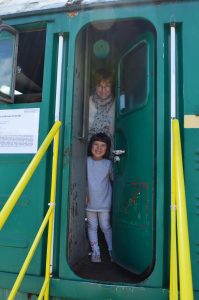
I grew up in communist Poland and then in the post-communist Poland. It meant that I first saw a computer when I was 12 years old. I had my first computer when I was 20 years old and I started using email then. I still remember waiting for 20 minutes to upload my inbox. I have always found technology fascinating albeit a bit mysterious. As I developed a professional career in research and policymaking, technology has never been a big part of my daily tasks. Emailing, operating the MS Office suite: that was it. So, I guess this pathway makes me a digital immigrant (Prensky 2001).
Thins changed when I was a member of the founding team of a research centre at a university in one of the European countries. That experience of establishing a new institution in early 21st century changed my perspective. I got interested in the ways we could send the research results to the world. I wanted to have a blog, FB page, run webinars and create and interactive database on migration in the countries bordering with the European Union. To my big surprise these ideas were not very popular. Researchers were overwhelmed with work and they did not want to write blog entries. Professors thought that research should speak by itself and they only wanted to communicate in traditional ways (face-to-face debriefings) with a closed group of donors. The institution did not prioritize the technology in research communication and it was very difficult to change anything. Eventually I gave up on the institution, but got interested in ways I can bring more technology to my skill repertoire. My time spent as a visiting scholar at Carleton University in Ottawa was a turning point.
First, I understood that universities in continental Europe are light-years behind in thinking and applying the principles of teaching and learning with technology. If I wanted to fit in the academic reality in Canada I had to quickly upgrade. This is how I started the MET Certificate. It has been a real eye-opener, an experience that made me more confident vis-à-vis technology (although I am not a tech-savvy and I doubt I will ever be).
Second, I realized that the technology-university nexus in Canada is largely limited to teaching (Bates, Bates, and Sangra 2011). It is all about enhancing learning experience of students (I realize that their fees are crucial for surviving of the institution, something we never worried about at the universities in continental Europe). The technology-social science research nexus has not been developed in full. And I want to use technology to create new ways of doing social and policy relevant research, but even more: to develop tools that will enhance the end-user experience outside of the academia.
I am now in the research consortium that is awaiting SSHRC decision to be funded. I packed the proposal with technology elements: videos instead of policy-briefs, webinars instead of small seminars, on-line game for the policy-makers so they can use our results in a simulation of decision-making (and learn about them in an efficient way), a virtual/interactive exhibition instead of long anthropological papers. I hope ETEC565a will help me narrow down the range of apps and software I could find useful. I often feel overwhelmed with what is on offer, really J Plus, I need to get my hands dirty before I actually do the project… The SECTONS model (Bates 2015) helped me already to think about my needs in the specific context: a research project catering for both the needs of the academics and the policymakers.
First, during the ETEC565a I want to decide what platform works best for me to create a project e-portfolio: is it wordpress, wix, or better be it in moodle? Considering that I will need a supreme compatibility with other programs that will support creating of video-capsules (with screen-capture and voice over functions), chats, closed discussion forums, webinars and also: host the on-line games (we will not make the game, this will be outsourced to the professional company). The e-platform should be also allow for hosting and linking e-portfolios of one group of our research subjects: Syrian refugees coming to Canada. Last bu not least: I am interested I simple data visualisation programs (I found Dr Watson absolutely impossible to use, but I tried to learn it by myself).
All in all, I think I know what I am looking for: for tools that will make the project fly J And even if we don’t get funded, I can still take this knowledge with me to the next one!
Bates, Anthony W. 2015. Teaching in Digital Age https://opentextbc.ca/teachinginadigitalage/
Bates, Anthony W., and Albert Sangra. 2011. Managing Technology in Higher Education: Strategies for Transforming Teaching and Learning. John Wiley & Sons.
Prensky, Marc. 2001. “Digital Natives, Digital Immigrants Part 1.” On the Horizon 9 (5):1–6.